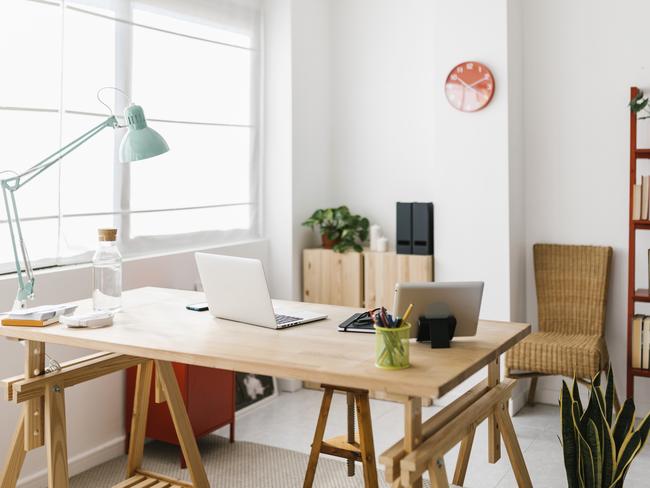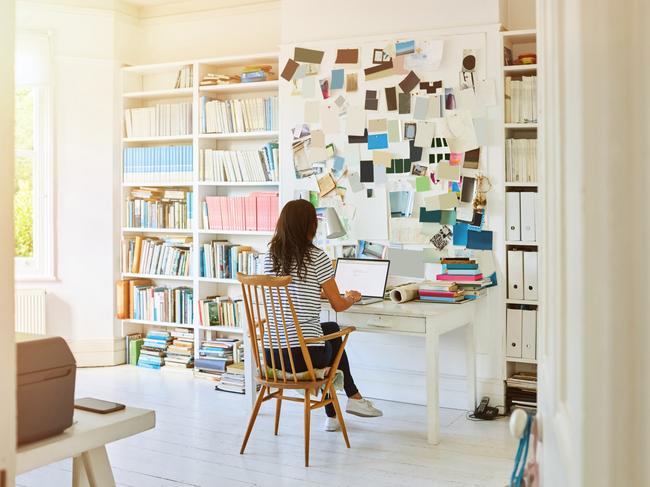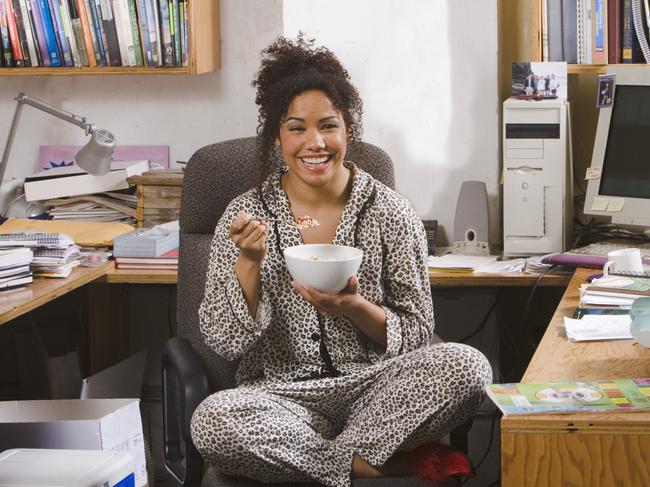Tax return 2023: Surprise home office tax write-offs you can claim
There have been major changes to what you can claim now it’s tax time again, with some surprise new inclusions thrown in by the ATO.
Property
Don't miss out on the headlines from Property. Followed categories will be added to My News.
Don’t you just hate throwing away money?
’Tis the end of the financial year and now is the time we look to the tax gods to give back some of our hard-earned cash.
According to the Australian Bureau of Statistics, in mid 2022 almost 50 per cent of the workforce were putting in some (if not all) of their work hours from their home.
TAX RETURN 2023: SURPRISE HOME OFFICE TAX WRITE-OFFS YOU CAN CLAIM
It’s not a matter of avoiding tax – but minimising what you cede to Canberra.
All about minimalism: To quote Kerry Francis Bullmore Packer when he appeared before a 1991 parliamentary inquiry into tax matters, “If anybody in this country doesn’t minimise their tax, they want their head read. As a government, I can tell you you’re not spending it that well that we should be paying extra.” And the crowd cheered.

The biggest name in tax agents in Australia would have to be H & R Block, so who better to pester about locating the ever-moving tax goalposts?
Mark Chapman is director of Tax Communications for the company.
“They (ATO) have recently changed the rules about what you can claim, and what proof you need to produce for your claim, which has really confused the issues for taxpayers,” he says.
Keep evidence
The dreaded receipts and invoices are your weapons in the battle of proof.
While tiny amounts such as (cleaner) Spray ‘n’ Wipe do strictly need receipts, the ATO generally has bigger fish to fry.
Bank statements and credit card statements are handy, but can easily be challenged.
If you bought the new desk from Kmart, you can prove you didn’t blow the $400 on Tim Tams and comfy jeans.

You obviously have a better chance if you buy office materials from known retailers such as Officeworks.
The thing is, don’t push your luck – like the guy who claimed garden furniture because he liked to work in the garden.
It’s optimise, not avoid.
Furniture and laptops
Perhaps the most basic item to consider is home office furniture. If you bought a new desk or chair, is that an easy deduction?
“If you use the desk exclusively for work, you can claim the cost without difficulty. If it was under $300 you can write it off immediately,” Chapman says.
However, if you share the desk between private and work use, you may have to apportion the cost, and if you bought a desk (or chair) for more than $300, you may need to depreciate that over a couple of years.

A privately bought laptop may be depreciated over several years – but only the proportion of the cost that relates to actual work.
For example, if four hours a day it is used for work, then two hours for YouTube and Marketplace, then shared with others for four hours – you can only claim half the cost of the laptop.
What about expenses?
Less simple is calculating additional energy expenses, internet and phone usage.
“The easy way,” Chapman says, “is the ATO fixed rate, which is 67 cents per hour.”
This umbrella rate covers all those things, even stationery and repairs, and applies to hours actually worked.

You can see how important record-keeping is, can’t you?
“Alternatively, you can use the actual cost method in which you work out how much internet you used in work and how much you used privately, how much the family used,” Chapman says.
But what about Tim Tams and coffee?
No, that won’t cut it. Toilet paper? Again, not happening. A baby gate to stop embarrassing moments of toddlers crashing Zoom meetings?
No, Chapman says: “You chose to have the baby.” Harsh.
What about office cleaning? Well, finally, yes.
“If you’ve got a domestic cleaner, you can claim the cost of cleaning your office. Alternately, if you use cleaning products to clean your office, you can claim those.”




